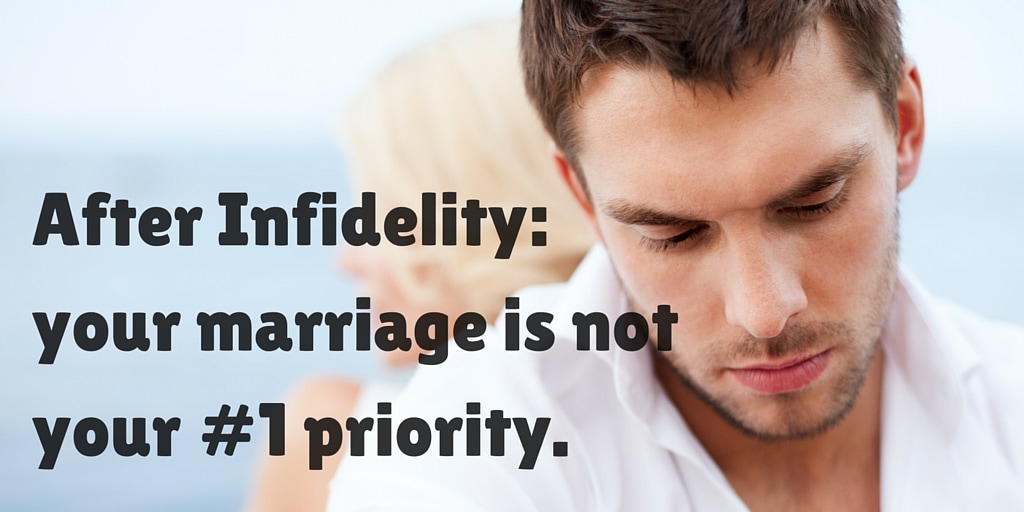Affair healing Blog
|
The couple had come to counseling together but tucked themselves into opposite corners of the couch as they unfolded their story. She'd been caught in a 9-month affair and now they sat here wondering about the future of their marriage. She said the affair was technically over and he said he was willing to work toward recovery, but neither of them knew how to fix the mess that had been made of their relationship. I asked them a question. "If counseling accomplishes what you want, what will be the outcome?" I simply want them to tell me more about their goals and expectations. Her answer was simple: "I just want a relationship that makes me happy."
His was less certain: "I'd do anything to get my marriage back, but I don't know if that's possible." "So," I clarified, "do you want the kind of marriage you had before the affair happened?" They were both quick to say they did not. They had not been satisfied with what their marriage had become. They wanted something different. This couple, like most I start working with, was focused on figuring out what changes were needed in order to experience a more satisfying marriage. It's not an unreasonable longing. I've never met a married person who prefers a mediocre connection with their spouse, much less an unpleasant one. But their quick focus on relationship change runs the risk of missing an important first step: the need for personal change. I mean REAL personal change, not just temporary behavioral shifts that result in brief relief. If a marriage is going to shift in meaningful ways, each partner must be willing to understand their contribution to the patterns of their relationship, gain some insight into why they do what they do (or feel what they feel), and discover a passion for personal growth and change. The only way marriage truly changes is when a genuine shift occurs in at least one of its participants. Your own healing and growth needs to be your #1 priority; your marriage, or your confident choices about your marriage, will naturally follow as a result. Consider these comments I frequently hear after an affair.
Each of these people is focussing on the relationship. And when I explore what's really going on, I find that what they are usually fixated on changes needed in their circumstances or in their partner. Very few focus on the one thing they can truly control: changing themselves. Why is it so hard to make self-change our first priority? Here are a few reasons:
If your marriage is going to heal, you need to heal first. Whether you are the unfaithful spouse or the betrayed one, give priority attention to your personal stability. Whether you are 80% responsible for your marriage problems or 20% responsible, turn your attention to those things that consistently keep you from experiencing intimate connections. Whether you believe your marriage will survive or die, find the steps that lead you toward a life that is more fully engaged with the people and passions that will matter for a lifetime. Want help figuring these things out? Counseling can help, but you also can read, watch, and listen to many wonderful resources. I've often recommended the following books as a good starting place:
Comments are closed.
|
AuthorUnless otherwise noted, articles are written by Tim Tedder, a licensed counselor and creator of this site and its resources. Topics
All
|
Copyright ©2009-2022, Tim Tedder, LMHC, NCC & contributing authors. Content on this site cannot be used or reproduced without permission. AffairHealing.com is a resource of Currents Services, LLC.


 RSS Feed
RSS Feed
